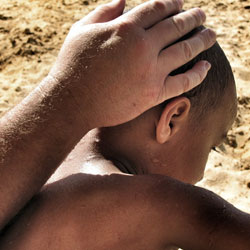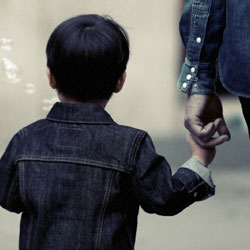Parent
Is physical punishment dangerous?
Some parents believe that physical discipline is for the child's own good. Other parents, when angry or stressed, may lash out at their child. Children are dependent on their parents for love and care, and never deserve to be hit or physically abused. Young children, such as those less than 12 months of age, don't have the intellectual maturity to understand discipline of any kind. Hitting or smacking will only frighten a young child, or cause serious and permanent injuries. Children also learn by example. By using physical discipline, you are teaching the child to resolve conflict with violence. Your child can only learn self-control and respect for others if you show them how it's done.
What behaviors can trigger parental anger?
Most children experience difficult periods of tantrums, food fussiness and lying. Try to remember that these times are normal phases of growing up and will one day pass. Suggestions on dealing with your child's aggravating behavior include:
- Endless crying - try baby massage or a warm bath, establish one or two regular babysitters to give you scheduled breaks, and check with your doctor for any underlying physical problem.
- Temper tantrums - try to ignore the tantrum if possible, or distract the child.
- Eating problems - anticipate that your child will make a mess and prepare for it, offer fussy eaters a greater variety of foods, check with your doctor if your child seems to have gone off food or is losing weight.
- Bed wetting - remember that it takes time for a child to master bladder and bowel control, so persist calmly and ask your doctor for advice or referral.
- Disobedience - reason with the child, explain why rules are necessary, and remove tempting but forbidden items out of their reach.
- Lying - explain why truthfulness is important and lead by example.
- Dealing with anger
If you feel rising anger because of your child's temper tantrum or endless crying, you need to take time out to deal with your feelings. Some suggestions include:
- Put your child in a safe place, such as their crib, and leave the room.
- Walk around the house or go outside.
- Inhale deeply and exhale slowly and steadily.
- Count your breaths to focus your concentration.
- Change your body language, for example by deliberately dropping your shoulders and unclenching your fists.
- Play your favorite music, loud enough to drown out the crying or yelling of your child.
- Make yourself a warm drink, but nothing with caffeine (tea or coffee).
- Physical activity burns up adrenaline and other stress hormones, so if you are still feeling angry, try sprinting from one end of your backyard to the other.
- Call a friend or relative and ask for help.
If your child is old enough to understand, explain why you were angry and had to leave them alone for a while.
How can I manage in the long term?
It is important to take care of your own needs and feelings. No matter how loving and selfless, a parent can't continue to give to their children while receiving little or no emotional nourishment themselves. Some suggestions include:
- Make the time to maintain your relationship with your spouse, even if one dinner alone together per week is all you can manage.
- Reward yourself, by scheduling at least one self-indulgent activity every day, such as sitting down in a quiet room to read a book, or having coffee with a friend.
- Find avenues of support, such as family members, friends or counselors who are prepared to listen to your problems sympathetically.
- Mix with other parents to share stories and swap parenting tips.
- Learn about child development, so that you can better understand and anticipate your child's behaviour.
- Try to fix underlying problems such as financial stresses, marital difficulties or problems at work, which impact on your ability to cope as a parent
- Investigate stress management options, such as yoga, meditation or regular exercise.
Things to Remember
- Most parents experience negative emotions from time to time.
- It is important to manage anger, so that you can enjoy parenting and maintain a safe, happy home for your child.
- Seek professional help if problems are too complex to solve on your own.



